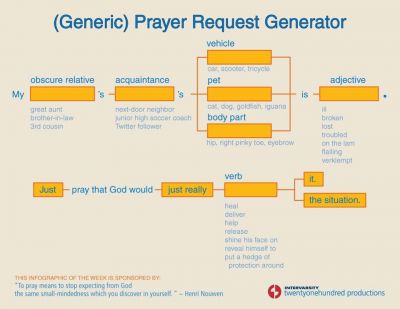The Struggle of Prayer - Part 2
The first voice of the creature
The first thing that prayer is is communication with God. If language is a gift of God then prayer is, or ought to be, the first or primary use of language. As such it is the first voice of the creature—whether audible or in silence—speaking to the Creator. As such it is never speaking to some “god,” but is always speaking to the God. If in no other way (and I do not say there are not other ways) this is what sets true prayer apart from false prayer. False prayer is a counterfeit because the god to whom it is offered is a counterfeit. Do we offer up pleas and praise to a divinity who smiles sedately upon all our trivial worship styles and our romanticized views of the Christian Life? That is not God. Do we pray to a cold, distant, offended deity, who moodily withholds answers because he is upset with us even after we have repented? Then our prayers are directed to a false god—one of our imagining.
In either of these scenarios it is ignorance which is the problem. And here I am addressing people with a Bible and a profession of faith in Jesus Christ. I say it again, true prayer can only be given to the true God, the God who reveals Himself in His holy Word.
We have already seen from Exodus 34 how God, even on Mount Sinai on the day the Tablets of the Law were cut, first proclaims those qualities of His essential goodness which promote our sanguine hope:
compassionate and gracious, slow to anger, and abounding in lovingkindness and truth; 7 who keeps lovingkindness for thousands, who forgives iniquity, transgression and sin.
This is a God to whom we can come with eyes open and hopes raised. Let us be encouraged. This is the covenant God of hesed—of steadfast devotion to us; sinners in a fallen world.
 (
(
 A sermon delivered at Calvary Baptist Church, Derby, Kansas. Reprinted with permission from
A sermon delivered at Calvary Baptist Church, Derby, Kansas. Reprinted with permission from 
Discussion